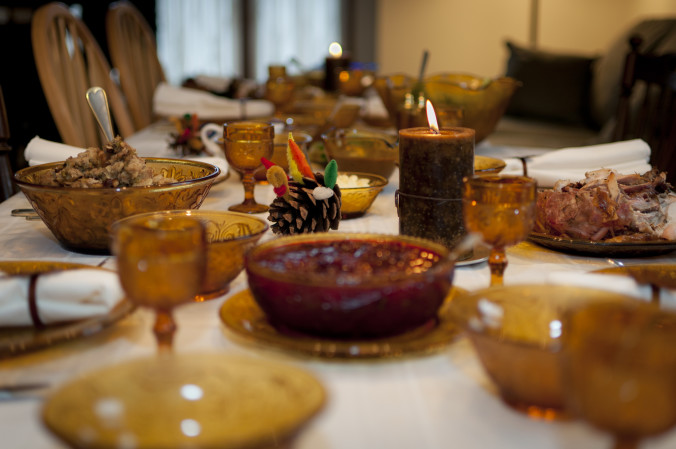When my oldest was born, we had a brief (largely unnecessary, IMHO) stay at the NICU. When he was cleared of his most pressing concern, it took us a while to get out of the hospital. The nurses and doctors were measuring every diaper and what filled it. They were weighing him hourly (he was born a healthy weight). While the nurses could tell me that he wasn’t hungry because he was content, sleeping, not fussing, the protocol said to measure, measure, measure. I left convinced that the hospital community would measure anything that could be attached to a number.
I’m not saying all metrics are a bad thing – far from it. My friend E has convinced me that there is a level of accountability available through our number games that must exist for the well-being of all people. But take a quick look at our society and you see us math-ing all the time. Calories burned & consumed. Test scores. Profit margin. Miles logged.
Not long ago a professional athlete posted his disdain for participation trophies. While I also think paying for little trinkets of shiny plastic is a tad silly (another post, another time), his comments revealed the ethos of our culture: We’re addicted to outcomes. We need to know how we measure up. Where do we fall in the bell curve? If I’m not Top Dog, how close am I and did enough people fall below me that I’m still in the upper tier?
If you’re running a business or a professional sports team, this is perhaps a helpful inquiry. But do you know where it doesn’t compute?
Worthiness.
Let me be clear my friends: in all my study, all my understanding of Scripture, all my time pondering the ways of God, it has never once come up that God takes all of humankind, lines them up according to salary, athletic prowess, months they successfully breastfed, BMI, or GPA. And if He did decide to rank us according to an asinine category, he certainly wouldn’t take only the top third with him to the pearly gates.
God doesn’t parcel out his love to the top performers. He does not hold a draft and there are no tryouts. If you want in, you’re in. If you want a fun little weekend project, read the gospels (or pick your favorite) and start counting the number of times the failures, the not-enoughs make it into Jesus’ roster. This isn’t just Good News that your imperfections don’t count against you – it’s Good News that you can stop comparing your best efforts to everyone else’s.
You don’t have to watch what everyone else is doing to know you’re worthy of love.
If you’d like another fun little reading project, start digging into the New Testament and make tally marks when you come across phrases like “what matters is something far more interior: faith expressed in love.” (Ephesians 5:6, MSG) or “Whoever lives in love lives in God, and God in them.” (I John 4:16).
So just stop. Stop adding. Stop averaging. If you want to become better at something because it makes your life better, than by all means – do it. Live life fully and stop half-assing what is important to you. The girl that keeps a Life Plan with 100 Year Goals will tell you there’s nothing wrong from wanting to extract every opportunity from this one blessed lifetime. But don’t use your improvement metrics as an argument to why you are loved, by others or by God. God doesn’t do a lot of math.
True love is attached to who you are, not what you’ve achieved. If you try to put love on a curve, remember that no one aced the test and we’re all getting a little boost in our performance. You cannot line up love from greatest to smallest, but if you try, remember that God is always partial to the least and last.
So may you stop adding and averaging your accomplishments as a means to feel worthy. May you sink your efforts and energies into loving and living well.
“Since this is the kind of life we have chose, the life of the Spirit, let us make sure that we do not just hold it as an idea in our heads or a sentiment in our hearts, but work out its implications in every detail of our lives. That means we will not compare ourselves with each other as if one of us were better and another worse. We have far more interesting things to do with our lives. Each of us is an original.”
-Galatians 6:25-26
*This post was strongly influenced by Brene Brown’s book Daring Greatly and the chapter on Scarcity. Read it.


